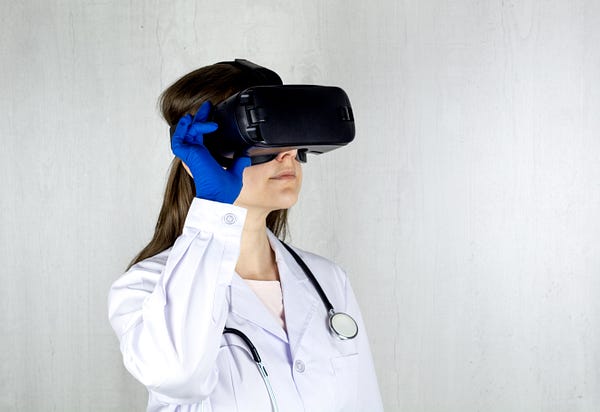Located in major medical centers, clinical trials all but halted during the pandemic, but a new approach has given birth to the trials.

He who studies medicine without books sails an uncharted sea, but he who studies medicine without patients does not go to sea at all. — William Osler
Clinical trials are vital to our understanding of disease processes. The trials of newly developed medications and treatments provide insight into how the drugs might ameliorate the symptoms, eliminate the disease, or kill the patient.
The usual procedure for laying out these trials’ disposition is that once patients are enrolled, they returned to the research site either weekly or on some other schedule for testing. The testing may go on for weeks, months, or even years in some instances.
Although “new” may imply “better,” it is not known whether the potential medical treatment offers benefit to patients until clinical research on that treatment is complete. Clinical trials are an integral part of new product discovery and development and are required by the Food and Drug Administration before a new product can be brought to the market.
The collected data is vital, and without it, researchers would be working like people walking in a darkened room feeling around for objects. Years could be spent on this process until a breakthrough might become apparent.
Transformative Clinical Trials Appear
The pandemic brought some research studies to a sudden stop as patients couldn’t travel, and staff couldn’t go to the labs. It was frightening for the patients and startling to the researchers who never saw this coming. The only glitch in some trials had been in enrolling patients who gladly traveled from a distance to be in the trials.
When I worked in psychiatry research, patients’ families offered large sums of money to buy their way into an Alzheimer’s trial. We refused the offers because science isn’t based on how much money you have or who you are.
One family offered $25K; another told us to name the sum for their mother’s admission into the trial. Even those who were too impaired to engage in the trial protocols had family begging them to be subjects. It was never easy telling them that it was too late for their loved ones to benefit from the trials.
Obviously, we see some fault lines in this formerly strong caveat. But the healthcare community had begun a partnership for transformative clinical trials. Now that is beginning to pay off, but even here, the need for change is obvious.
After conducting more than 25 projects and issuing recommendations for specific strategies to improve the design and execution of clinical trials, some common themes and lessons learned have emerged. Lessons include the importance of engaging many stakeholders, advanced planning to address critical issues, discontinuation of non-value added practices, and new opportunities presented by technology.

Revamping Clinical Trials Under Covid’s Constraints
The COVID-19 pandemic has created massive disruptions to clinical trial research across the world. As in other aspects of life, the virus has severely affected the ability to conduct trials in safe and effective ways. This is especially true when considering that trials often deal with vulnerable populations who are most at risk from exposure to COVID-19. Thousands of trials have been suspended or stopped because of the difficulties in continuing under lockdown conditions, even as those restrictions have begun to ease in parts of the world.
Quarantine, isolation, and social distancing necessitated as a preventive measure to stop the viral transmission has added to the difficulties in running clinical trials. There have also been shortages in terms of medical resources and staff. While trials may have been suspended or terminated, others anticipate delays in enrollment and the initiation of new studies.
One of the new changes discussed will result in central committees approving clinical trials rather than institutions having their own research review boards (IRB). This, it is believed, will increase the rapidity with which trials may begin. Also, there may be a need for re-consent of patients in current trials due to exposure in clinical settings to the covid virus.
In the past, it was anticipated that patients would remain in studies unless there were valid reasons for them to drop out. Clinical trials may now offer early termination for individuals who may be particularly vulnerable to the virus and should not be put at risk in clinical settings.
For monitoring purposes, especially for elderly or cancer protocols, the recommendation is that monitoring be done outside the hospital or clinical setting where possible. Also, attention needs to be paid to patients’ inability to pay for any trials, especially those without health insurance coverage. But there are now new methodologies brought into play by covid.
Advances in technology have promoted vital telemedicine, which may enable certain types of monitoring in clinical trials far from the site of origin. New methods for evaluating current data are also being considered. Data obtained from trials that were terminated may still provide important advances and will be reviewed. Along with this, trials must be decentralized wherever possible to ensure that the trials’ population is adequately sampled.

Research Must Continue
“As we navigate this new era, we’re constantly assessing the risks and benefits of how we’re adapting to the pressures and restrictions of COVID-19,” Ruth O’Hara, PhD, Stanford Medicine’s senior associate dean for research, told me. “Our thinking on this is to prioritize patient safety, while recognizing that in-person visits — and clinical trials — are still at the heart of clinical research, ultimately translating into state-of-field patient care. So we needed to find ways to achieve our clinical research mission during the pandemic.”
Digital tools, such as those that might be worn by a patient, and telehealth, are now being included in clinical protocols. Besides, patient histories, patient consent forms, and even remote testing of cognitive abilities and neurological exams can be performed using a computer. Weekly or monthly visits to the site can be eliminated by the use of this technology.
This enables clinical researchers to evaluate patients in multiple time zones, something which might not have been possible in the past.
No longer must the patient be in the physical setting with the researcher, which requires a change in thinking about the protocols. One researcher, Dr. Rajesh Dash, MD, Ph.D., has begun a new project that will be an all-digital clinical trial. He will be able to monitor patient adherence to medication regimes remotely and gauge several other issues.
Out of necessity came innovation as a result of the pandemic. The horizon has now been cleared in a new way for clinical trials, and all-virtual trials are seen as feasible. These new virtual trials will provide a broader patient population without the former restrictions of the past.
Not only will this new format save time, but it will enable patients to be enrolled who would not have had this opportunity because of the remoteness of their location. Healthcare will truly come to the needy masses thanks to technological changes in research.
